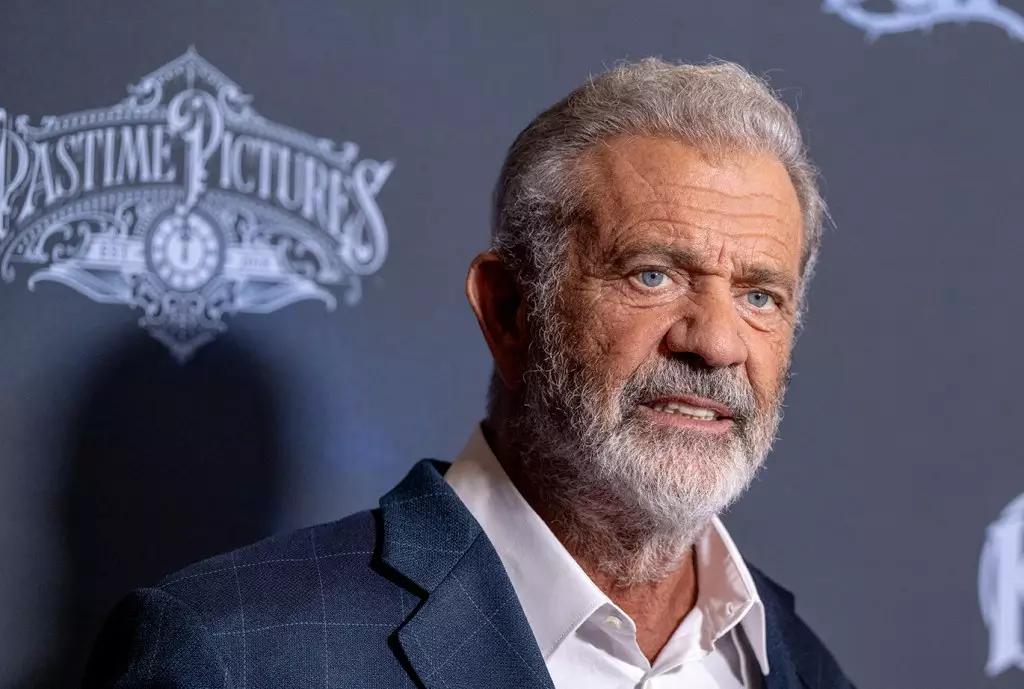The recent firing of Elizabeth G. Oyer, a Justice Department pardon attorney, sheds light on the dangerous intersection of celebrity status and justice. Oyer’s termination, which occurred just one day after she refused to recommend Mel Gibson for the restoration of his gun rights, raises serious questions about integrity within our legal system. This incident serves as a stark reminder that even in an era of increasing zeal for intervention in public affairs, the decisions made about who deserves second chances can be heavily influenced by personal relationships and social standing.
The implications of such favoritism are deeply concerning. In a society where a history of domestic violence stands as a significant predictor of future offenses, the idea of restoring gun rights to someone like Gibson—a figure with a documented history of troubling behavior—presents both a moral and a legal risk. Oyer had valid reasons for her reservations: the recidivism rate among domestic abusers is alarmingly high. The Justice Department should promote accountability and safety rather than bending the rules for powerful individuals like Gibson.
Celebrity Influence Over Justice
To make matters worse, Oyer’s claims suggest that her dismissal was rooted not merely in her professional assessment but rather in the weight of Gibson’s celebrity status. According to her allegations, a senior official implied that Gibson’s ties to former President Trump warranted special consideration. This revelation is disheartening; it indicates that the intertwining of politics and celebrity may override the very principles of justice. The tremendous power allocated to celebrities, particularly those with controversial pasts, presents a moral conundrum that our legal institutions must wrestle with.
This case reflects a broader trend where public figures are shielded from the consequences of their actions. It raises critical questions: What does it mean for our justice system when a person’s notoriety can overturn the rightful outcomes of legal proceedings? When money and fame supersede accountability, we risk fostering a culture that devalues the safety and well-being of the very citizens these laws are meant to protect.
Oyer’s Courage and the Implications for Justice
Oyer’s refusal to compromise her principles in the face of pressure from her superiors requires commendation. In a climate where many may choose expediency over integrity, her decision to voice legitimate concerns about public safety is a testament to professional ethics. However, the consequences of her stand have been dire. The fact that it ultimately cost her job highlights the precarious position faced by individuals committed to upholding justice against external pressures.
The need for institutional safeguards that protect employees who dare to question potentially unethical decisions has never been clearer. The chilling effect that Oyer’s firing could have on other professionals contemplating whistleblowing or raising ethical concerns should not be underestimated. By punishing those who prioritize public safety over political expedience, we perpetuate a toxic environment that undermines the very fabric of our legal institutions.
The Broader Context of Domestic Violence and Weapon Access
The underlying issue at heart—the restoration of gun rights to someone with a history of domestic violence—needs to be addressed within the broader context of public health and safety. The U.S. law prohibiting individuals with certain convictions from owning firearms is not merely a bureaucratic measure; it is a safeguard aimed at preventing the potential misuse of firearms by those who have already exhibited violent tendencies. Undeniably, the stakes involved in such cases are too high to be dictated by celebrity endorsements or political affiliations.
It is essential to have policies that promote transparency and consistency, ensuring that similar cases do not distort safety protocols due to influential relationships. As Americans, we must collectively demand fairness in the judicial process, advocating for regulations that ensure public safety comes first.
The Call for Systemic Reforms
This scandal offers a crucial opportunity for reform within the justice system. The American public ought to encourage lawmakers to critically evaluate how celebrity influence can inadvertently compromise fundamental legal principles. It’s time to instigate discussions about checks and balances within governmental departments that handle pardons and firearm restorations, initiating systemic changes that reinforce accountability over clout.
Making long-lasting changes requires a concentrated effort to educate and instill ethical leadership at every level of government. The notion that anyone—regardless of their fame—should be held to the same account as average citizens isn’t just a principle; it’s a necessity for fostering a just and equitable society.

